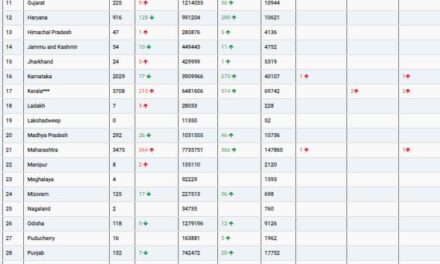Stanford Researchers Identify Molecular Signature to Predict Vaccine Durability
How long will vaccine protection last? A simple blood test may soon have the answer. Researchers at Stanford School of Medicine, Stanford, California, have identified a molecular signature in the blood that appears days after vaccination and predicts the durability of the immune response. Published in Nature Immunology in January, this groundbreaking discovery has the potential to revolutionize vaccine development, testing, and personalization. The findings also shed light on why some vaccines provide lifelong immunity while others lose effectiveness within months.
The Challenge of Vaccine Durability
One of the key challenges in vaccinology is ensuring long-lasting, protective immunity. The duration of vaccine protection varies depending on the type of vaccine and the individual’s immune response. Scientists have long sought to understand why some vaccines, like those for smallpox and yellow fever, confer lifelong immunity, while others, such as seasonal flu vaccines, require frequent boosters.
Live attenuated viral vaccines, including the measles-mumps-rubella (MMR) vaccine, tend to offer long-term protection. In contrast, inactivated vaccines—such as those for influenza, pertussis, and typhoid—often show waning immunity over time. Similarly, vaccines for diseases like malaria and HIV have struggled to achieve durable antibody responses.
Adjuvants, substances added to vaccines to enhance immune responses, play a critical role in determining the longevity of immunity. Over the past three decades, advancements in adjuvant technology have led to the development of novel formulations such as:
- Oil-in-water emulsions (MF59, AS03) used in influenza vaccines
- TLR4 agonist adjuvants used in vaccines against respiratory syncytial virus, herpes zoster, and human papillomavirus
- Oligonucleotide adjuvants found in hepatitis B vaccines
- Saponin-based adjuvants (Matrix-M) used in recombinant COVID-19 and malaria vaccines
The Role of Molecular Signatures
Recent advances in immunology have enabled researchers to identify molecular markers in the blood that correlate with vaccine efficacy. A meta-analysis of over 3,000 blood samples from 820 adults across 28 studies on 13 vaccines revealed a plasma cell signature that predicts antibody responses.
However, until now, no study had identified a cellular or molecular signature capable of predicting how long an immune response would last. The Stanford research team aimed to address this gap by analyzing the factors influencing both the strength and longevity of vaccine-induced immunity.
Their findings revealed a molecular signature that emerges in the blood just days after vaccination, offering critical insights into the mechanisms of durable immunity. The key component of this signature is RNA fragments derived from bone marrow megakaryocytes, which enter the bloodstream via platelets.
Predicting Vaccine Longevity with Machine Learning
To validate their discovery, the researchers conducted a systems vaccinology analysis of immune responses to the H5N1 avian influenza vaccine, with and without the AS03 adjuvant. Fifty healthy individuals received two doses of the vaccine, and blood samples taken within 100 days revealed a molecular signature linked to long-lasting antibody responses.
Further experiments in mice confirmed that activating megakaryocytes through thrombopoietin enhanced the durability of vaccine-induced antibodies. This activation also supported the survival of human bone marrow plasma cells via integrin-mediated interactions, boosting long-term immunity.
Building on these findings, the researchers developed a machine-learning model trained on data from 244 participants who received seven different vaccines, including those for seasonal flu, yellow fever, malaria, and COVID-19. The results consistently showed that platelet-associated RNA molecules—markers of megakaryocyte activation—were strong predictors of durable antibody responses across diverse vaccines.
Implications for Vaccine Development
This breakthrough has significant implications for public health and vaccine research. A simple blood test based on platelet-associated markers could soon allow scientists and healthcare providers to estimate vaccine durability within days of administration. Such a test would:
- Accelerate vaccine clinical trials by providing early predictions of immune response longevity
- Improve vaccine design by enabling targeted modifications to enhance durability
- Enable personalized vaccination strategies based on individual immune profiles
Researchers now aim to validate their findings across different vaccines and diverse populations worldwide. If successful, this approach could transform the way vaccines are developed and administered, ensuring more effective and long-lasting immunity against infectious diseases.
Disclaimer: This article is based on current research and findings published in Nature Immunology. The predictive blood test is still in the research phase and has not yet been approved for clinical use. Further studies and regulatory approvals will be required before implementation.












